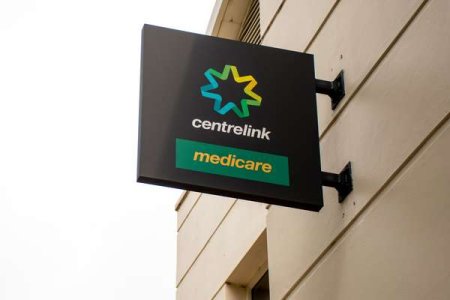‘Dole bludger’? Expert explains why common criticism of Centrelink recipients misses the mark
- Replies 51
Navigating the job market can be daunting for anyone, but the hurdles can be even higher for those receiving Centrelink benefits.
As the debate over welfare payments flares up with the latest increase in Centrelink payments, it's time to shed light on the hidden struggles many recipients face and dispel the unfair stereotypes that often accompany discussions about unemployment and welfare.
The latest indexation to payments will see five million Australians on Centrelink get a modest increase in their payments, with up to $20 extra per fortnight.
While any increase is welcome, especially in the face of rising living costs, it's important to understand that these payments are indexed to inflation and represent a mere 1.8 per cent rise, hardly enough to keep pace with the rapidly increasing cost of living.
The term 'dole bludger' is a harsh label that has been used to stigmatise those on welfare, suggesting a lack of willingness to work.
However, experts, including Dr Elise Klein from the Australian National University, have highlighted the complex reality many Centrelink recipients face, which often goes unnoticed by the general public.

Dr Klein points out that a significant number of those on social security are engaged in work that isn’t compensated financially.
'A lot of folks that are on social security are doing huge amounts of unpaid work, particularly unpaid care work,' Dr Klein said late last year.
Additionally, many recipients grapple with health issues or disabilities that make it difficult, if not impossible, to work.
According to Dr Klein, the tightening of disability support pension eligibility over a decade ago has pushed many with partial work abilities onto the lower-paying JobSeeker benefit, leaving them to struggle with inadequate financial support while dealing with serious health concerns.
'When you're battling cancer or know you have disability, you're not looking for work,' she added.
'You can't be looking for work; you're trying to stay alive.’
'The whole rationale behind JobSeeker is a complete mismatch to where people are at.'
The challenges don't end there.
Dr Klein said that location can be a significant barrier for welfare recipients, particularly in remote areas where job opportunities are scarce.
Moreover, the policy requirements for Job Seekers and Youth Allowance recipients to fulfil mutual obligations, such as actively seeking work, attending interviews, and participating in training, can be overwhelming and counterproductive.
For Dr Klein, it’s high time for a change—or an overhaul.
'The payments are so low that people are finding themselves below the poverty line, and that's a major barrier for people being able to go out and look for work,' she said.
'There's a huge body of Australian-specific research that shows that mutual obligations work against people.’
'Folks that are actually subject to mutual obligations don't want them and say that they're really harmful and impact their confidence and ability to go out and look for work.’
'They take up people's precious time, and they're completely at odds with the reality.'
The Australian Council of Social Service (ACOSS) has advocated for an increase in income support payments to a level that allows recipients to afford basic necessities.
Cassandra Goldie, CEO of ACOSS, argues that the current rate of JobSeeker and related payments is insufficient, leaving over a million people struggling to make ends meet.
To address this, she says bumping JobSeeker and related payments to $80 daily would be adequate.
'The changes will still leave more than one million people relying on JobSeeker and related payments struggling to survive, with JobSeeker rising by just 96 cents a day to $55 a day,' Ms Goldie said.
'It is completely insufficient for people who are barely surviving, forced to ration food and medicine or suffer through sweltering heat because they cannot afford to cool their homes.
'With unemployment expected to rise this year, lifting income support is not only the right thing to do; it provides an essential buffer against falling living standards and rising job losses.'

Members, share your thoughts and experiences with Centrelink and the job market (for those who’ve decided to return to work). Have you or someone you know faced these challenges? What changes would you like to see to make the system fairer for everyone?
As the debate over welfare payments flares up with the latest increase in Centrelink payments, it's time to shed light on the hidden struggles many recipients face and dispel the unfair stereotypes that often accompany discussions about unemployment and welfare.
The latest indexation to payments will see five million Australians on Centrelink get a modest increase in their payments, with up to $20 extra per fortnight.
While any increase is welcome, especially in the face of rising living costs, it's important to understand that these payments are indexed to inflation and represent a mere 1.8 per cent rise, hardly enough to keep pace with the rapidly increasing cost of living.
The term 'dole bludger' is a harsh label that has been used to stigmatise those on welfare, suggesting a lack of willingness to work.
However, experts, including Dr Elise Klein from the Australian National University, have highlighted the complex reality many Centrelink recipients face, which often goes unnoticed by the general public.

Those on Centrelink payments sometimes face criticism for their supposed dependence on welfare. Is it all that simple? Image Credit: Shutterstock
Dr Klein points out that a significant number of those on social security are engaged in work that isn’t compensated financially.
'A lot of folks that are on social security are doing huge amounts of unpaid work, particularly unpaid care work,' Dr Klein said late last year.
Additionally, many recipients grapple with health issues or disabilities that make it difficult, if not impossible, to work.
According to Dr Klein, the tightening of disability support pension eligibility over a decade ago has pushed many with partial work abilities onto the lower-paying JobSeeker benefit, leaving them to struggle with inadequate financial support while dealing with serious health concerns.
'When you're battling cancer or know you have disability, you're not looking for work,' she added.
'You can't be looking for work; you're trying to stay alive.’
'The whole rationale behind JobSeeker is a complete mismatch to where people are at.'
The challenges don't end there.
Dr Klein said that location can be a significant barrier for welfare recipients, particularly in remote areas where job opportunities are scarce.
Moreover, the policy requirements for Job Seekers and Youth Allowance recipients to fulfil mutual obligations, such as actively seeking work, attending interviews, and participating in training, can be overwhelming and counterproductive.
For Dr Klein, it’s high time for a change—or an overhaul.
'The payments are so low that people are finding themselves below the poverty line, and that's a major barrier for people being able to go out and look for work,' she said.
'There's a huge body of Australian-specific research that shows that mutual obligations work against people.’
'Folks that are actually subject to mutual obligations don't want them and say that they're really harmful and impact their confidence and ability to go out and look for work.’
'They take up people's precious time, and they're completely at odds with the reality.'
The Australian Council of Social Service (ACOSS) has advocated for an increase in income support payments to a level that allows recipients to afford basic necessities.
Cassandra Goldie, CEO of ACOSS, argues that the current rate of JobSeeker and related payments is insufficient, leaving over a million people struggling to make ends meet.
To address this, she says bumping JobSeeker and related payments to $80 daily would be adequate.
'The changes will still leave more than one million people relying on JobSeeker and related payments struggling to survive, with JobSeeker rising by just 96 cents a day to $55 a day,' Ms Goldie said.
'It is completely insufficient for people who are barely surviving, forced to ration food and medicine or suffer through sweltering heat because they cannot afford to cool their homes.
'With unemployment expected to rise this year, lifting income support is not only the right thing to do; it provides an essential buffer against falling living standards and rising job losses.'
Key Takeaways
- Centrelink recipients are facing challenges and misconceptions when it comes to finding employment, with unfair comments like 'get a job' undermining their efforts.
- Dr Elise Klein from the Australian National University has identified volunteering commitments, health issues, financial hardship, and location as key obstacles for Centrelink recipients seeking jobs.
- The debate over welfare payments is in focus as Centrelink payments have been indexed, providing a modest increase to recipients that some argue is still insufficient to lift them above the poverty line.
- Advocates, including the Australian Council of Social Service, are urging the government to increase income support payments to match the pension rate to ensure recipients can afford basic living expenses.
Last edited:







